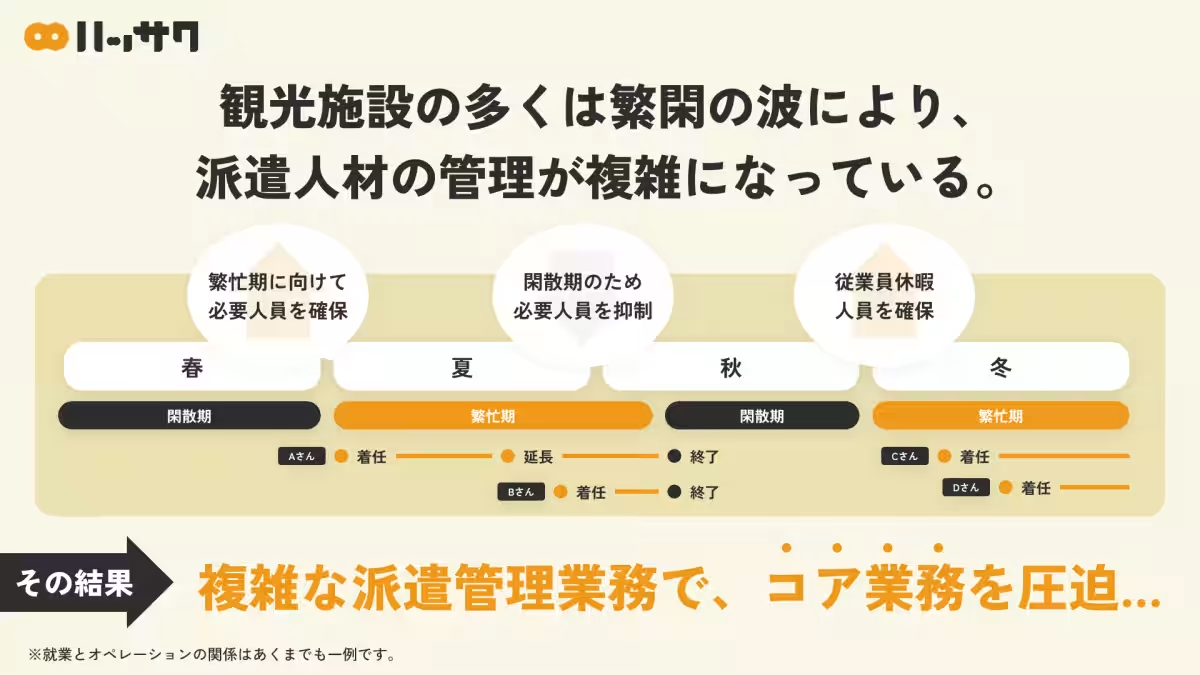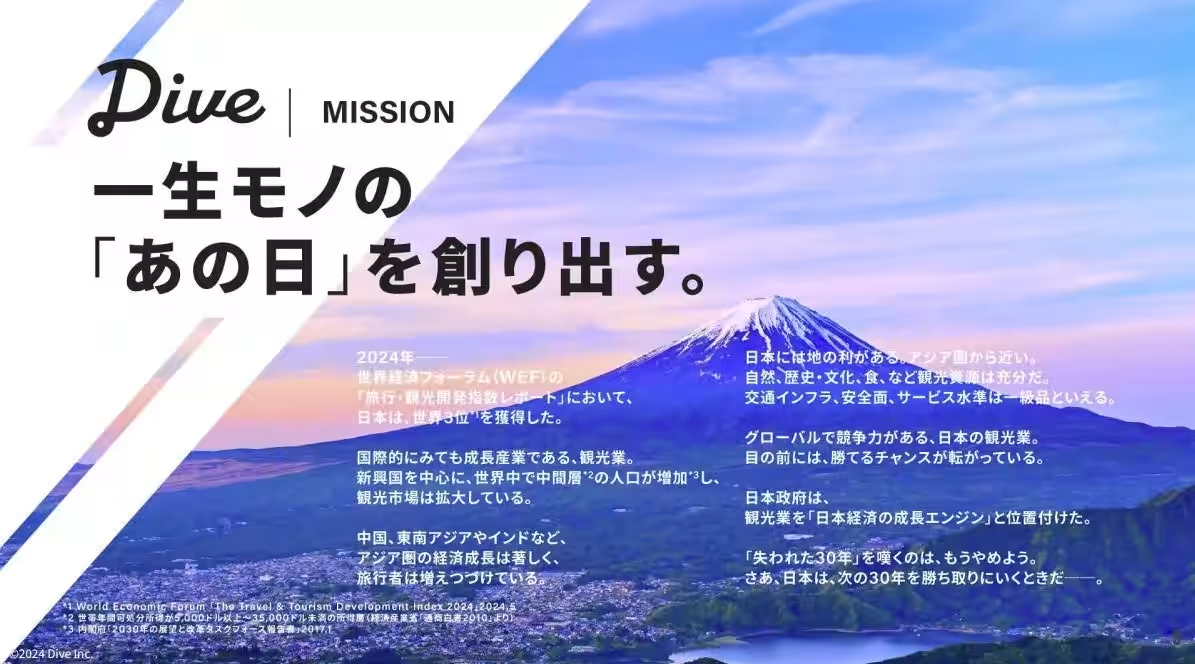

Dive Launches Its Own SaaS to Streamline Staffing in the Tourism Industry
Dive's Innovative SaaS for the Tourism Sector
Dive Inc., based in Shinjuku, Tokyo, is focused on solving staffing challenges within Japan's tourism industry. With over 4,600 facilities nationwide, the company is committed to enhancing the efficiency of human resource management in this unique sector. Recently, Dive announced the development of their own Software as a Service (SaaS) called 'Hassaku,' which is currently pending patent approval.
What is Hassaku?
Hassaku has been created to address specific challenges faced by the tourism sector, such as the dramatic fluctuation in staffing needs during peak seasons and the piecemeal information management typically involving several staffing agencies. By providing a single platform that unifies the entire staffing process—from posting job openings to managing employees during their tenure—Hassaku aims to simplify operations and significantly reduce management burdens. This approach not only prevents information disaggregation but also expedites the administrative tasks associated with onboarding new staff, easing the overall workload for operations within the hospitality industry.
Key Features of Hassaku
- - Centralized Order Management: Allows for consolidated orders to be made to multiple staffing companies.
- - Referral Management: Streamlines the management of employees from the point of their acceptance through to their tenure.
- - Staff Management: Channels extension and termination processes into a single streamlined operation.
- - Role Permission Management: Provides the ability to set function restrictions for each employee based on their roles.
The Need for a Tourism-Specific SaaS
Historically, staffing for tourism facilities has been conducted using paper and Excel sheets. This traditional approach, particularly for job descriptions and the number of staff depending on different roles and facilities, often leads to inefficient management due to the manual efforts by HR personnel. This decentralized information management poses a significant hurdle for effective operations.
Unique to the tourism industry is the need for temporary staffing, often for only two to three months during peak seasons. This distinctive requirement adds to the complexity of management, especially for large resort hotels that rely on multiple staffing companies during busy times. Consequently, decoupling staffing recruitment from operational workloads has become increasingly critical, as HR teams often juggle these demands alongside their usual responsibilities, overstretching their capacity.
Since its inception in 2002, Dive has been dedicated to providing personnel services specifically for the tourism industry, focusing on addressing the unique challenges it faces. Employees often need to move between multiple job sites, complicating paperwork and communication with various facilities. By leveraging core systems and official channels like LINE, Dive has effectively streamlined these processes, emphasizing operational efficiency. With Hassaku, the company aims to resolve the current chaos surrounding staffing management and adeptly cater to the fluctuating personnel needs of the tourism sector.
Future Developments
Looking ahead, Dive emphasizes continual refinement of Hassaku by incorporating feedback from frontline employees and adapting to the evolving landscape of the tourism industry. The company's goal is to enhance the working conditions and productivity within accommodation providers and tourism operators, ultimately promoting sustainable personnel development and value creation in the sector.
Company Overview
Company Name: Dive Inc.
Founded: March 2002
CEO: Kiyoshi Shoji
Headquarters: 10F Shinjuku Seven Building, 2-8-1 Shinjuku, Tokyo 160-0022
Website: Dive Inc. Website
Dive Inc. operates as a venture company striving to solve the significant challenges faced by one of Japan's major economic engines: the tourism industry. Their primary business model focuses on staffing services for tourism facilities, addressing the crucial issue of labor shortages by supporting the placement of 9,320 tourism workers as slated by 2024. Furthermore, the company also engages in regional revitalization efforts through a D2C tourism project across six non-tourist areas and actively supports accommodation facilities with IT-based marketing solutions like the glamping-focused media, 'GLAMPICKS.'




Topics Business Technology)










【About Using Articles】
You can freely use the title and article content by linking to the page where the article is posted.
※ Images cannot be used.
【About Links】
Links are free to use.